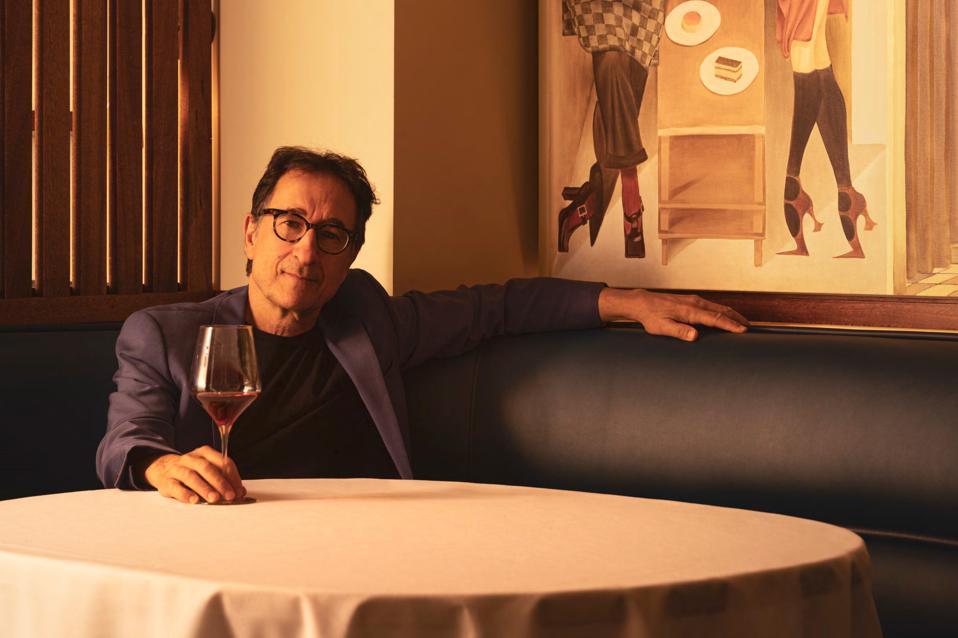Want to know the secret to creating an amazing customer experience? It’s simpler than you might think. I recently interviewed Michael Cecchi-Azzolina on my podcast, Amazing Business Radio, and his answer was refreshingly straightforward: “Be kind. Just be nice.”
Cecchi is the owner of Cecchi’s restaurant in New York City and author of Your Table is Ready: Tales of a New York City Maître D’. With nearly 40 years in the hospitality industry, he’s learned that kindness trumps everything else.
It’s Called “Hospitality” for a Reason
Cecchi noticed something interesting. Customers weren’t just thanking him for good service—they were specifically thanking him for his “hospitality.” This shift represents something important. People don’t just want service. They want to feel welcomed, valued and cared for.
Cecchi said, “This is new. I’ve been doing this for almost forty years, and I’ve only been hearing this the past year and a half or so.” The trend in what customers want and expect—for all industries, not just hospitality—is an experience that includes employees who are friendly, knowledgeable and helpful. That’s hospitality.
The Food or Service Question
Years ago, Cecchi interviewed for a job with legendary restaurateur Danny Meyer, who asked him a question that would stick with him for decades: “What’s more important, food or service?” After years of working with world-class chefs, Cecchi’s answer is clear: “It always came down to the service.”
His point is, you could have the best product in the world, but if your service is poor, customers won’t come back. As Cecchi put it, “If you have a surly waiter, a maître d’ who’s rude, a bartender who doesn’t acknowledge you … chances are you’re not coming back.”
My annual customer service and experience research backs this up. Every year, my survey finds that rudeness and apathy are the top reasons customers leave businesses. Sure, the product is important, but kindness—the opposite of rudeness and apathy—is what keeps them coming back.
We Don’t Sell Products—We Sell Experiences
One of my favorite quotes from our conversation was when Cecchi said, “We don’t sell food. We sell an experience. The experience begins when our front door opens. If the lights are perfect and the music is right and you’re getting this wonderful smile from the person at the door … you’re winning.” This is true for every business. You aren’t selling insurance, software or consulting services. You’re selling an experience wrapped around those things.
What does this look like in your business? What’s your equivalent of perfect lighting and the right music? It might be as simple as answering the phone with a smile in your voice or remembering a customer’s name.
The Broadway Principle
Cecchi’s first job out of high school was working at Playwrights Horizons. They had no money to pay him, but he wanted the experience. His boss knew Cecchi needed money to live, and it would be a short time before Cecchi would have to move on, so the boss got him a job at the restaurant across the street.
Cecchi compared restaurant service to Broadway theater: “This is a theater. We’ve got a script. We’ve got a set … those actors who were crushing it, they might have had a breakup that day or someone died in the family. You must put that aside.”
I call this the Broadway Principle. Legendary actor Richard Burton used to tell himself before performances (paraphrased): “Tonight, I want to be so good that I cheat the audience that was here last night.”
What if everyone, no matter their business or industry, approached customer interactions with that level of commitment?
Hiring for Heart, Not Just Experience
Cecchi’s hiring philosophy is not focused on the experience that employees have in the restaurant industry. Although that helps, he’s looking for people who genuinely love interacting with others. “I don’t hire people because of their resume,” he explained. “It takes a really special person to understand what real hospitality is.”
In 2011, I interviewed Jim Bush, former SVP of Worldwide Customer Experience at American Express. His hiring philosophy was similar. I’ll never forget his advice about hiring. Bush explained that given the choice between someone with 10 years of experience in a contact center or someone who worked at a restaurant, he’d hire the restaurant worker every time because they understood how to take care of people. In other words, they understand the hospitality mentality.
It’s All About Emotion
At its core, business is emotional. As Cecchi put it, “Restaurants are an emotional experience. People come in because they’re on a date, or celebrating a birthday or an anniversary.” Again, this isn’t just true for restaurants. Whether you’re buying a car, choosing a healthcare provider or selecting a software vendor, emotions drive decisions.
Cecchi shared a story that perfectly captures the power of hospitality: “I had six women at one table who’d been in the restaurant about 12 times. I jokingly said, ‘Thank God there are no other restaurants in New York City.’ And one of them looked at me and said, ‘Michael, there’s no restaurant in New York City that treats us the way you do here.’”
That story summarizes what we should all aim for—to be the one business that treats customers like no one else does. And it starts with something as simple as being kind, the core of the hospitality mentality.

